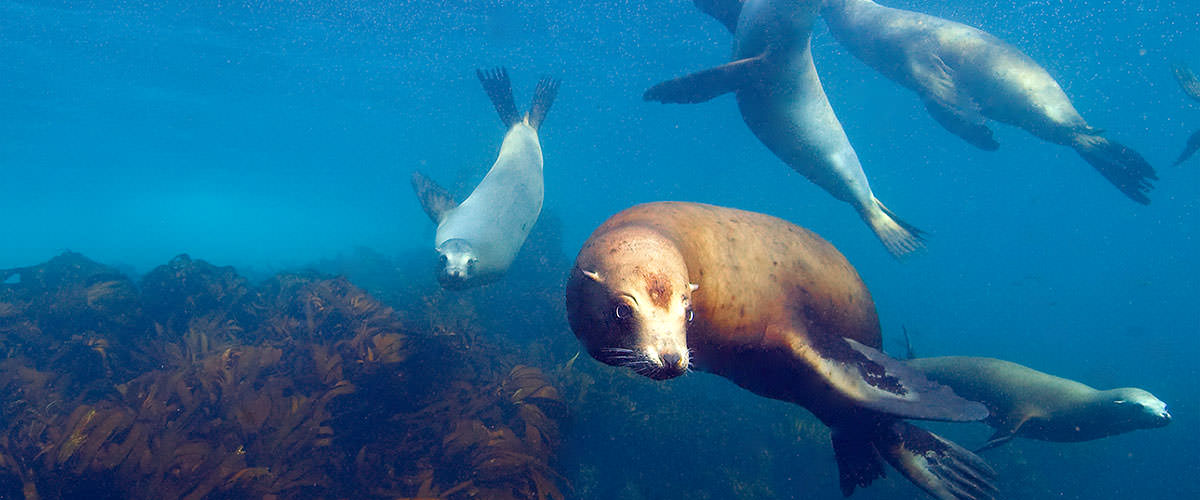Channel Islands Science Needs

Learn more about the immediate science needs for critical management issues. For a full list of management issues and science needs, please review the CINMS Management Plan. To contact us about the science needs described below, contact the Sanctuary Research Coordinators.
Understanding how local management actions can abate, adapt to, or mitigate the effects of a changing climate is critical to Channel Islands National Marine Sanctuary management of water quality, maritime heritage, and living and non-living marine resources. (Updated March 2022)
Marine ecosystems are connected by the movement of biotic and abiotic ecosystem components and processes across varying spatial scales. An understanding of ecosystem connectivity within, between, and around Channel Islands National Marine Sanctuary is critical to sanctuary management. (Updated March 2022)
Access to timely information on current status and recent changes in key indicators of the condition of Channel Islands National Marine Sanctuary is vital for effectively evaluation management strategies and informing policy. (Updated March 2022)
Basic information about the seafloor within and surrounding Channel Islands National Marine Sanctuary is required to proactively protect sensitive marine resources that are at risk from disturbance. (Updated March 2022)
Understanding the services Channel Islands National Marine Sanctuary provides to different communities can aid in protecting those services and balancing the multiple and sometimes competing needs and values of different groups. (Updated March 2022)
Channel Islands National Marine Sanctuary requires fine-scale bathymetry and habitat maps to make an array of critical decisions related to navigational safety, disaster response, endangered species and fisheries management, conservation, restoration, research, energy development, and marine spatial planning. (Updated March 2022)
Information on human activities within Channel Islands National Marine Sanctuary is essential for identifying the places that are important to different people, making decisions to support sustainable practices, resolving conflicting needs of different user groups, responding to stressors, and supporting local communities and partners. (Updated March 2022)
Marine debris is a growing concern among Channel Islands National Marine Sanctuary managers; debris can affect natural and cultural resources with in sanctuary waters and pose threats to human health, economies, and ecosystem function. (Updated March 2022)
Humans and marine life produce and rely on underwater sound for navigation, locating animals or objects, and sensing the environment. Ocean sound research can improve the ability of Channel Islands National Marine Sanctuary managers to characterize sanctuary soundscapes and assess impacts on sanctuary resources, particularly for animals that rely on sound to forage, socialize, and navigate. (Updated March 2022)

